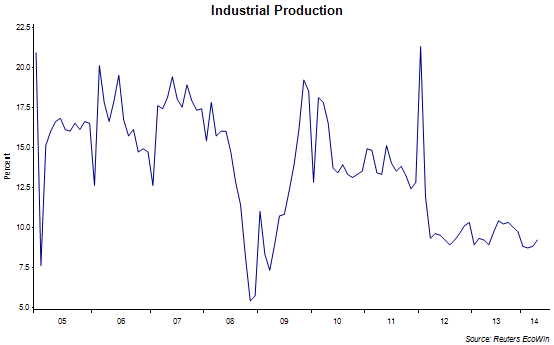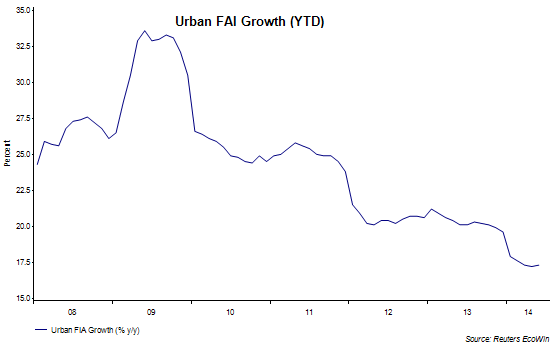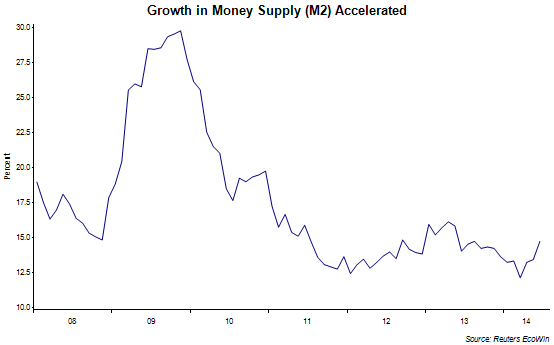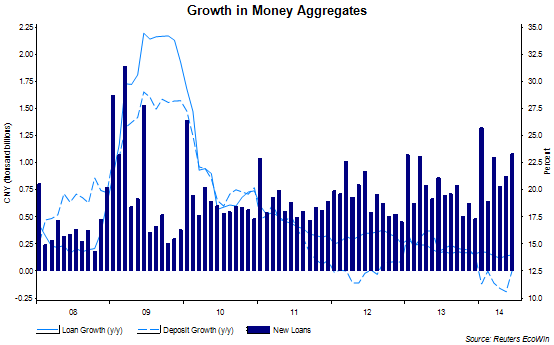China's GDP grew +7.5% y/y in 2Q14, accelerating from +7.4% in the prior
quarter. The National Statistics Bureau also reported that the
sequential GDP growth soared to +8.2% q/q, saar in the second quarter,
compared with +6.1% in the priod quarter.. On quarterly basis, growth
accelerated to +2% q/q from an upwardly revised +1.5% in 1Q14.
China's GDP grew more than expected in 2Q14, thanks to the government's fiscal and monetary stimulus. Meanwhile, economic data in June suggested that growth fixed asset investment and industrial production accelerated, indicating the stimulus began to take effect during the period.


The better-than-expected economic growth last quarter was mainly driven
by tfiscal and monetary easing measures. Note that acceleration of IP
growth to +9.2% y/y (from May's +8.8%) and FAI growth to +17.6% (from
+17.0% in May) in June suggested that the government's measures,
focusing on increasing spending in infrastructure and social housing,
were having an impact. Indeed, today's data were consistent with the
strong monetary data released yesterday.




Yet, we believe the biggest challenge against China's economic growth comes from the real estate sector. Concerning home sale, it was reported that the decline in new home sales in floor space terms and value terms eased to -3.5% and -5.3%, respectively, in June, from contraction of -10.8% and -11.3%, respectively, in May. However, new home starts contracted -13.8% y/y in June, worse than the -12.0% decline in May. Indeed, looking into the details of the FAI data, year-to-date real estate investment grew +14.1% y/y in the first half, moderating from the +14.7% gain in the first 5 months of the year.



